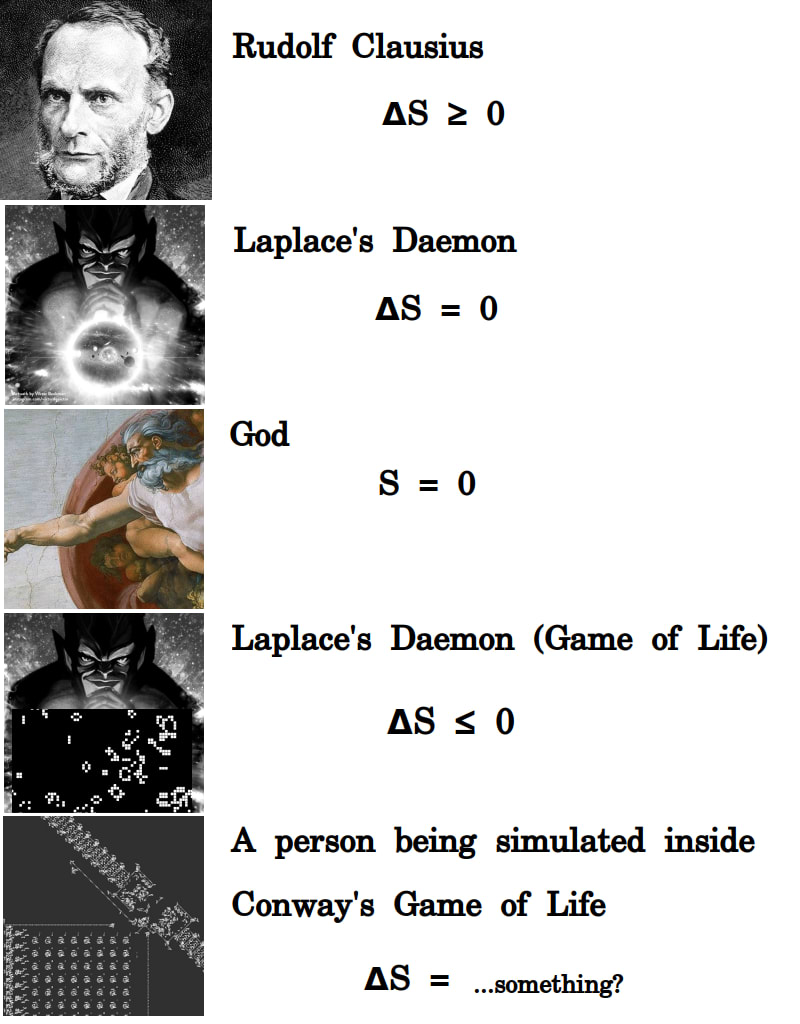Embedded Agents are Quines
post by lsusr, DaemonicSigil · 2023-12-12T04:57:31.588Z · LW · GW · 7 commentsContents
7 comments
7 comments
Comments sorted by top scores.
comment by Yoav Ravid · 2023-12-12T10:02:20.348Z · LW(p) · GW(p)
I don't remember exactly where, but Eliezer wrote about that view of Entropy in the Quantum Physics Sequence [? · GW].
while probabilities can be subjective, the laws of probability, the rules governing how probability can be manipulated are immutable.
And he wrote about this view of probability in Probability is Subjectively Objective [LW · GW].
Replies from: mike_hawke↑ comment by mike_hawke · 2023-12-12T19:14:32.622Z · LW(p) · GW(p)
Are you thinking of The Second Law of Thermodynamics and Engines of Cognition [LW · GW]?
Replies from: Yoav Ravid↑ comment by Yoav Ravid · 2023-12-13T06:11:01.740Z · LW(p) · GW(p)
Yes, I think so! Thanks :)
comment by Noosphere89 (sharmake-farah) · 2023-12-12T21:55:24.337Z · LW(p) · GW(p)
It turns out that the Second Law of Thermodynamics is a special case of a more general result called Noether's Theorem, which tells us that a differentiable symmetry of a system with conservative forces automatically generates/has it's own conservation law, and the conservation of energy/the Second Law is a special case of this when the symmetry is time.
Here, a symmetry is a situation where a feature is preserved under transformations, and the fact that physics is time-symmetric, meaning that it doesn't matter whether an identical physical process happens now, in the past, or in the future means that the Second Law of Thermodynamics/Conservation of Energy automatically pops out.
It is not a probabilistic statement, as long as we accept time-symmetry.
https://en.wikipedia.org/wiki/Noether's_theorem
There is another derivation of the Second Law that is more specific to quantum mechanics, and this is also explanatory, but it's pretty specific to our universe:
https://www.quantamagazine.org/physicists-trace-the-rise-in-entropy-to-quantum-information-20220526/
Replies from: interstice↑ comment by interstice · 2023-12-12T22:01:09.573Z · LW(p) · GW(p)
and the conservation of energy/the Second Law is a special case of this when the symmetry is time
Conservation of energy is not the same thing as the second law of thermodynamics.
Replies from: sharmake-farah↑ comment by Noosphere89 (sharmake-farah) · 2023-12-12T22:04:11.829Z · LW(p) · GW(p)
Conservation of energy is not the same thing as the second law of thermodynamics.
Are you talking about the difference between the First and Second Laws of thermodynamics?
Replies from: interstice↑ comment by interstice · 2023-12-12T22:05:07.682Z · LW(p) · GW(p)
Yes.
